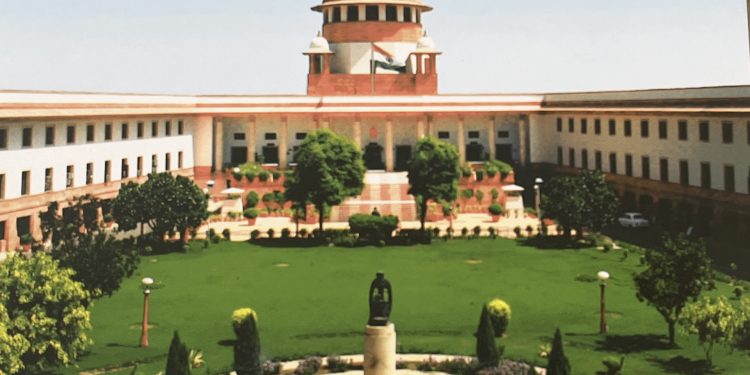Today, India’s Supreme Court invalidated the electoral bonds scheme, which permitted anonymous donations to political parties, deeming it unconstitutional. The court declared that the scheme contravenes the right to information outlined in Article 19(1)(a) of the Constitution. The bonds have been a mysterious source of funding for elections that has generated hundreds of millions of dollars in revenues for political parties, especially the ruling Bharatiya Janata Party (BJP).
In addition, the five-judge Constitution Bench nullified the amendments to the Income Tax Act and the Representation of People Act that facilitated anonymous donations.
While the court reached a unanimous decision, with the Chief Justice delivering the primary verdict, Justice Sanjiv Khanna expressed a concurring opinion, offering slightly different reasoning.
Of particular significance, the State Bank of India was directed to disclose details of electoral bonds received by political parties to the Election Commission of India (ECI) by March 6. Subsequently, the ECI will publish these details on its official website by March 13.
Dismissing the Centre’s arguments, the court emphasized that justifying the scheme as a means to combat black money in politics was untenable. It stressed that transparency in political funding cannot be attained by granting absolute exemptions.
The Congress party has welcomeded the Supreme Court’s ruling invalidating the electoral bond scheme, asserting that it will strengthen the influence of votes over monetary contributions. Congress general secretary Jairam Ramesh said on X, “The Supreme Court has held the much-touted Electoral Bonds scheme of the Modi Sarkar as violative of both laws passed by Parliament as well as the Constitution of India.”
Senior Advocate Prashant Bhushan said, “The Supreme Court has struck down the Electoral Bond scheme and all the provisions that were made to bring it into effect have been struck down. They have held that this violates the fundamental right to information of citizens to know about who is contributing money to political parties. They have also struck down the unlimited contribution being made by companies to political parties.”
Electoral bonds (EBs) function as “bearer” instruments, akin to currency notes. They are available in denominations of 1,000 rupees ($12), 10,000 rupees ($120), 100,000 rupees ($1,200), one million rupees ($12,000), and 10 million rupees ($120,000). These bonds can be acquired by individuals, groups, or corporate entities, and then contributed to the political party of their choice. The recipient party can later redeem these bonds, without accruing interest, after a period of 15 days.
Unlike donors contributing more than 20,000 rupees ($240) in cash, whose identities must be disclosed by political parties, those donating through electoral bonds are not obligated to reveal their identities, regardless of the donation’s magnitude.
Upon introducing the new law permitting this form of funding, the Modi government also eliminated several transparency-enhancing requirements in political funding: It repealed a previous law limiting corporate donations, removed the obligation for companies to disclose their contributions in their financial statements, and allowed foreign companies, previously prohibited from funding Indian parties, to do so through their Indian subsidiaries.
The BJP emerged as the primary recipient of electoral bond donations, according to data from the Election Commission of India. Between 2018 and March 2022, 57 percent of the total donations via EBs, totaling 5,271 crore rupees (approximately $635 million), were directed towards the BJP. In contrast, the Indian National Congress, the next major party, received 952 crore rupees (about $115 million).
Under EB regulations, only the State Bank of India, a publicly owned entity, is authorized to sell these bonds. This has led many to contend that it grants the government in power unrestrained authority.










